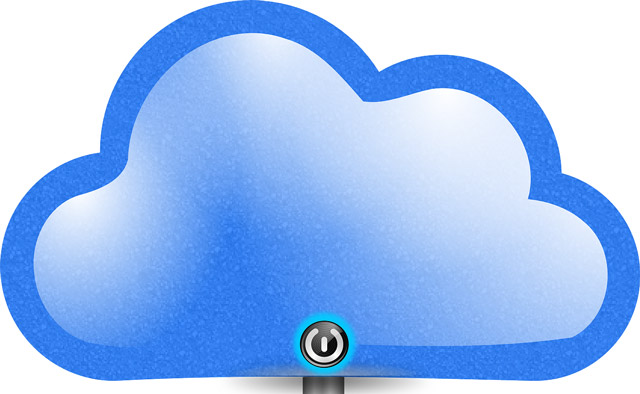 I love the cloud. To me it is a great solution to a problem that has been dogging computer users for decades: what to do with all the data? Raise your hand if you have lost a bunch of personal data because of a hard drive crash. Now keep it there if you can actually remember the first time it happened.
I love the cloud. To me it is a great solution to a problem that has been dogging computer users for decades: what to do with all the data? Raise your hand if you have lost a bunch of personal data because of a hard drive crash. Now keep it there if you can actually remember the first time it happened.
Not many will. In fact, after a while you simply lose count. I can with confidence say that I’ve had catastrophic data storage failure at least five times. It’s happened a lot more, but at around the fifth time I stopped keeping track of it. Most of the time the data in question is of the illicit kind scraped online or from friends’ collections: movies, music and so forth. Every time you plan to hold onto that stuff, but inevitably it will turn into dust and swept away by the wind.
A good friend of mine ran into an even more frustrating situation. He held a large collection on a series of Raid drives, all part of a high-end media centre solution. Things were great… until the centre’s motherboard gave in. Being a custom machine with specialised hardware, other than replacing the entire unit he had no way to recover those files. In fact, the machine still sits there as a monument to data failure. Ten terabytes of data and no way to get to it.
Every such loss stings, but our memories draw shorter. We just start again.
Those losses are fine when it involves data that is not really important. It’s a lot harder when the files are your documents, your e-mail and the other more functional titbits that may or may not be very important one day.
Then the cloud came along and solved this problem. E-mail lives on a server somewhere. So do Word documents. I habitually store interview recordings on a remote drive, something that has proven useful on several occasions.
But every silver lining also has a dark cloud associated with it, if you’ll excuse the pun. While the cloud is a fantastic way to manage and distribute data, it can turn around and bite you.
Cloud providers do not take responsibility for your data. If Google Drive or OneDrive or Dropbox throw a piston, resulting in your data disappearing, that’s not their problem. Go read the terms and conditions: you have no real recourse at all.
When celebrity photos were leaked due to a hack of Apple’s iCloud service, the company denied responsibility. It said the accounts were hacked due to user mistakes. How exactly hackers guessed the passwords of nearly 600 accounts is a bit of a mystery, but Apple nonetheless washed its hands of the situation.
But it need not be a data breach. I recently discovered that cloud companies will not tackle anything that fall outside their explicit responsibilities. Just this past month I was due to make payment for an annual service on one of the major cloud drive providers — a service it promoted to me. Yet upon doing that, the company discovered that I was marketed to by mistake: it was an offer made only to US-based users, but I somehow still got unknowingly included by accident.
The company shrugged, locked my account and said I have 30 days to clear it before it would delete all my files. That is it: after more than a year of using the service as a paying customer, I’m excluded from the circus. Even though the company created the situation, it’s my problem.
So here I am, downloading a year’s worth of data on my own time and expense before my storage is deleted. The service provider doesn’t care. It claims it does, as the many service agents eloquently state while they read from scripts. It was laughable how they kept saying they hope to continue having my business, even as they killed the one thing I paid them for.

What I thought was a nice solution to my storage woes has now become a tedious nightmare. At least when a hard drive crashes, I get closure. Here I just get frustration. And the provider gets to keep that money I spent on it in the past.
This is the dark side to the cloud and the services revolution in general. I’ve had pangs of it before, like Google’s stupid merging of Google Docs and Google Drive. Once these companies decide to change something, the only people with recourse are those who spend a lot of money with them. In other words, companies. Personal users are as expendable as cheap thumb drives from a marketing event.
But companies are also affected, which is why open data has become so topical. The ability to migrate data and services easily from one cloud provider to another is becoming a sticking point for many businesses. You simply cannot rely on the unpredictable nature of the cloud, not unless you build your own or hold enough clout to have your voice heard.
The rest of us just have to roll with it. This is not just a storage issue: raise your hands again if you use Netflix, but can’t access many of the shows you used to a year or so ago. The service regularly purges content, which is sensible. But it also means that such cloud platforms are caught in a reality of “right here, right now”. Instant gratification or bust. Longevity is for the analogue world. Some argue that this is typical of a new technology scene where things have yet to settle. Maybe that is true, but I don’t think so. Instead, cloud providers are writing a long list of what is not their problem. If that list could say “everything”, it would.
To cloud, everything is transient and nothing permanent. That sounds great, but it also means that cloud is a poor solution to the problem of data permanence. That means we don’t actually have any real solution to that problem — hard drives last less than a decade, so do most recording media.
Steven Wozniak said in 2012 that he worries about everything going to the cloud: “I think it’s going to be horrendous. I think there are going to be a lot of horrible problems in the next five years.”
I believe he was right. Now, if you’ll excuse me, I need to go download several dozen gigabytes worth of data within 30 days, before the cloud provider that so happily took my money pulls the plug because it screwed up its marketing.
Or maybe I should just leave it all to rot. The first hard drive crash stings the most. Maybe the first cloud crash does as well and after that you learn to just not care.
And people ask me why I still stockpile physical paperwork for my tax records…
- James Francis is a freelance writer whose work has appeared in several local and international publications
- Read previous columns by Francis

